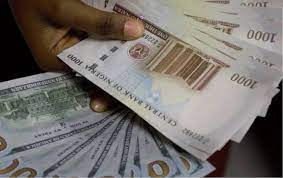The proportion of Nigerians with accounts at regulated institutions – such as banks, microfinance organizations and mobile money service providers – rose from 16 per cent to 45 per cent in 2021.
This was disclosed by the World Bank in a report titled, “The Global Findex Database 2021: Financial Inclusion, Digital Payments, and Resilience in the Age of COVID-19.”
The Bank stated that the overall account ownership rate in developing economies increased by 30 percentage points, from 42 per cent in 2011 to 71 per cent in 2021 – a rise of more than 70 per cent.
The World Bank stated that global account ownership increased by 50 per cent from 51 per cent in 2011 to 76 per cent in 2021. Nigeria’s account ownership growth increased from 30 per cent to 45 per cent throughout the time period under consideration.
It stated, “Individual economies saw different rates of growth over the past decade. Between 2011 and 2021, economies such as Peru, South Africa, and Uganda drove up the average with account ownership increases of 25 percentage points or more.
The Bank added, “Other economies saw much smaller increases over longer periods. Pakistan, for example, grew by just 10 percentage points over the past decade, from 10 per cent in 2011 to 21 per cent in 2021. The Arab Republic of Egypt and Nigeria increased ownership by 18 percentage points and 16 percentage points, respectively—from 10 per cent to 27 per cent in Egypt, and from 30 per cent to 45 per cent in Nigeria.”
The world bank stated that having an account is a key indicator of financial inclusion and opens the door for both men and women to use financial services in a way that promotes growth.




